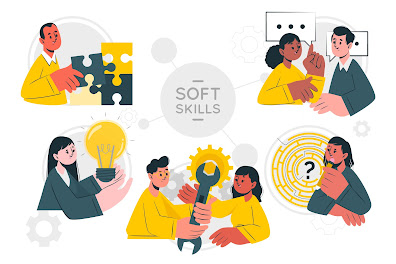Level 3 CAVA vs. Internal Quality Assurance (IQA): What's the Difference?
Introduction
In the realm of vocational education and training, ensuring quality and consistency in assessment is crucial. Two key qualifications that often come up in this context are the Level 3 Certificate in Assessing Vocational Achievement (CAVA) and Internal Quality Assurance (IQA). Although both play significant roles in the assessment process, they serve different purposes and cater to distinct responsibilities. This article will delineate the differences between Level 3 CAVA and IQA, shedding light on their respective roles, requirements, and significance in vocational education.
What is Level 3 CAVA?
Overview of Level 3 CAVA
The Level 3 Certificate in Assessing Vocational Achievement (CAVA) is a qualification designed for individuals who wish to become assessors in vocational education. It equips learners with the skills and knowledge necessary to assess and evaluate the performance of learners in various vocational settings. This qualification is particularly focused on practical assessment, involving direct observation and assessment of learners' competence in their respective fields.
Key Objectives of Level 3 CAVA
- Assessing Competence: The primary objective of CAVA is to train individuals in the assessment of learners’ competence in the workplace. This includes assessing practical skills, knowledge, and overall performance.
- Formative and Summative Assessment: The qualification covers both formative (ongoing) and summative (final) assessment techniques. Assessors learn to provide constructive feedback and ensure that learners meet the required standards.
- Assessment Methods: CAVA covers various assessment methods, including direct observation, professional discussions, and portfolio reviews.
Who Should Pursue Level 3 CAVA?
- Aspiring Assessors: Those who aim to become vocational assessors and need to validate their competence in assessing learners’ achievements.
- Current Assessors: Existing assessors seeking to formalize their qualifications and improve their assessment techniques.
- Training Providers: Individuals working within training organizations who are responsible for assessing learners in practical settings.
What is Internal Quality Assurance (IQA)?
Overview of Internal Quality Assurance
Internal Quality Assurance (IQA) focuses on the quality control aspect of the assessment process. IQA practitioners are responsible for ensuring that assessment practices are consistent, fair, and in line with established standards. They play a critical role in maintaining the integrity of the assessment process within educational organizations.
Key Objectives of IQA
- Quality Assurance: IQA practitioners ensure that the assessment process meets regulatory and organizational standards. They monitor and review assessment practices to guarantee consistency and fairness.
- Standardization: They work to standardize assessment practices across different assessors and settings, ensuring that all learners are assessed fairly and consistently.
- Support and Development: IQA practitioners support assessors by providing feedback, guidance, and training. They help assessors understand and apply best practices in assessment.
Who Should Pursue IQA?
- Quality Assurance Professionals: Individuals interested in overseeing and improving the quality of assessment practices within educational institutions.
- Experienced Assessors: Those who have experience in assessing and wish to take on a supervisory role, ensuring the quality and consistency of assessment across the board.
- Educational Managers: Professionals responsible for maintaining high standards of assessment and ensuring compliance with regulatory requirements.
Comparing Level 3 CAVA and IQA
Core Responsibilities
- Level 3 CAVA: Focuses on the practical assessment of learners. Responsibilities include evaluating learners’ performance, providing feedback, and ensuring that learners meet the necessary standards.
- IQA: Concerned with overseeing the assessment process. Responsibilities include monitoring assessors, reviewing assessment practices, and ensuring quality and consistency.
Qualification Focus
- Level 3 CAVA: Emphasizes direct assessment of learners’ skills and knowledge. It includes practical components, such as direct observation and assessment of portfolios.
- IQA: Concentrates on quality assurance and control of the assessment process. It involves evaluating and improving assessment practices and ensuring adherence to standards.
Target Audience
- Level 3 CAVA: Intended for those who want to become vocational assessors or improve their assessing skills. It is suitable for professionals directly involved in evaluating learners’ achievements.
- IQA: Aimed at individuals interested in overseeing and ensuring the quality of assessment. It is ideal for those in supervisory or managerial roles within educational settings.
Frequently Asked Questions
What are the entry requirements for Level 3 CAVA?
To enroll in the Level 3 CAVA, candidates typically need to have relevant vocational experience and a basic understanding of assessment principles. Some programs may require candidates to be currently involved in assessing learners.
Can I pursue both Level 3 CAVA and IQA?
Yes, it is possible to pursue both qualifications. Individuals might start with Level 3 CAVA to become assessors and later pursue IQA to take on a quality assurance role. Each qualification complements the other in ensuring high-quality assessment practices.
How long does it take to complete Level 3 CAVA and IQA?
The duration of these qualifications can vary depending on the provider and mode of study. Generally, Level 3 CAVA takes a few months to complete, while IQA might take a similar or slightly longer period, depending on the depth of the program.
Are there career opportunities with Level 3 CAVA and IQA?
Yes, both qualifications open up various career opportunities. Level 3 CAVA leads to roles as vocational assessors, while IQA can lead to positions in quality assurance and managerial roles within educational organizations.
Conclusion
In summary, the Level 3 Certificate in Assessing Vocational Achievement (CAVA) and Internal Quality Assurance (IQA) are distinct but complementary qualifications in vocational education. Level 3 CAVA focuses on equipping individuals with the skills to assess learners’ practical performance, while IQA is centered around ensuring the quality and consistency of the assessment process. Understanding these differences is crucial for professionals seeking to enhance their roles within vocational education. Whether pursuing a career in assessment or quality assurance, both qualifications offer valuable skills and knowledge essential for maintaining high standards in vocational education.

.jpg)


Comments
Post a Comment